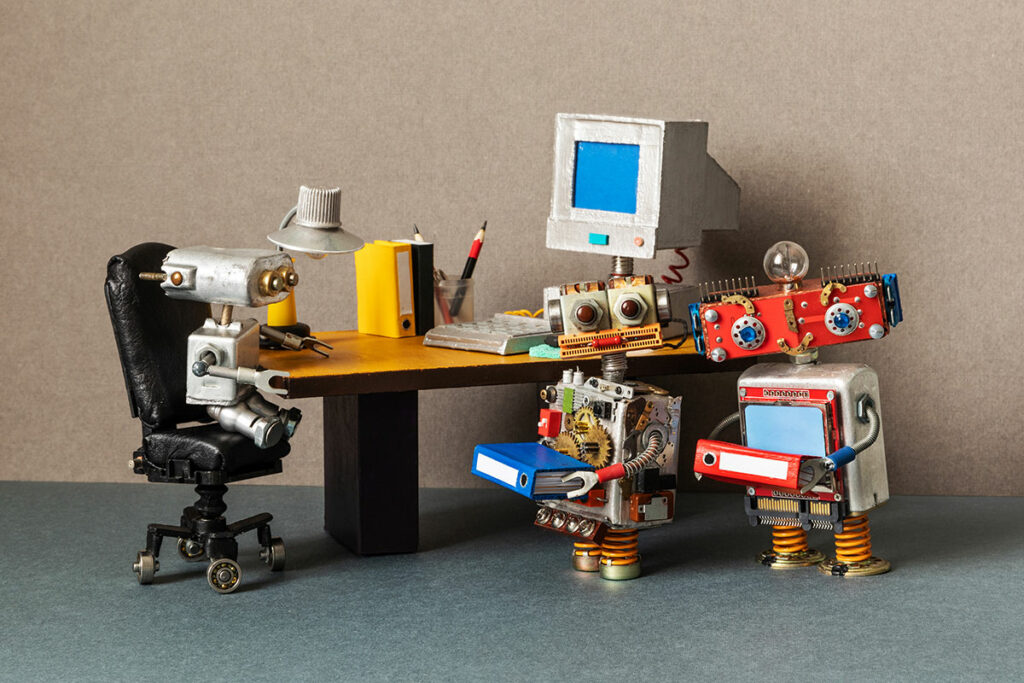Robot Apocalypse Business Edition Still a Long Way Off

You can’t scroll through social media or flip through digital media without running into self-appointed AI influencers peddling advice to business owners and entrepreneurs dipping a toe into the world of artificial intelligence, as well as admonishment for those who are holding back.
There are a variety of would-be consultants warning people that AI won’t take their job –somebody who uses artificial intelligence will. But will they really? And even if they do, is it likely to happen anytime soon?
Probably not – on both counts.
According to a report from the U.S. Census Bureau, the robot apocalypse barely has a toehold in the business world. The proof? U.S. companies spent $1.3 billion on robotic equipment in 2022, largely unchanged from the previous year. And while that sounds like a lot of cash – echoing the late Everett Dirksen’s “a billion here, a billion there, and pretty soon you’re talking real money” perspective on federal government spending – it represents only 1.1% of total equipment expenditures for 2022.
Another Census Bureau report released in November of last year found that less than 4% of businesses use AI to produce goods and services. But you wouldn’t know it from the volume of ink actual and digital spent on expounding the miracle that is artificial intelligence.
Some of the more extreme promoters see AI as the fundamental disruptive force in business of the next decade, at least. That may end up being true. But jumping on the high-tech bandwagon is nothing new and despite all the promises digital technology offers, we still haven’t reached that nirvana of the paperless office.
It’s not unusual for people to get overwhelmed by the potential of new technologies. Think flying cars and nuclear-powered homes, for example. But more often than not, the general adoption of these technologies takes a while, and usually by then the enthusiasts have moved on to something else new and shiny.
It is clear that AI can do a lot of things to make running a business more efficient and thus more profitable. And society needs visionaries who see a greater potential for innovation than the rest of us, even if they turn out to be too far ahead of their time or just plain wrong.
But even in our tech-saturated world, it still takes time for things to work themselves out. Exactly how AI will benefit a business depends on the business, just as it depends on the willingness of individual business owners to embrace the technology. Just because something is new and digital doesn’t necessarily make it better.
That adds up to a lot of hype about AI as an essential business tool but not a lot of actual implementation. It’s not really smoke and mirrors, but it also isn’t going to change office routines all that much in the short term.
When AI can create a perfect deep fake to take virtual meetings and nobody notices, I’ll be interested. Until then, artificial intelligence is only an all-purpose tool – and potential threat – in science fiction movies.









